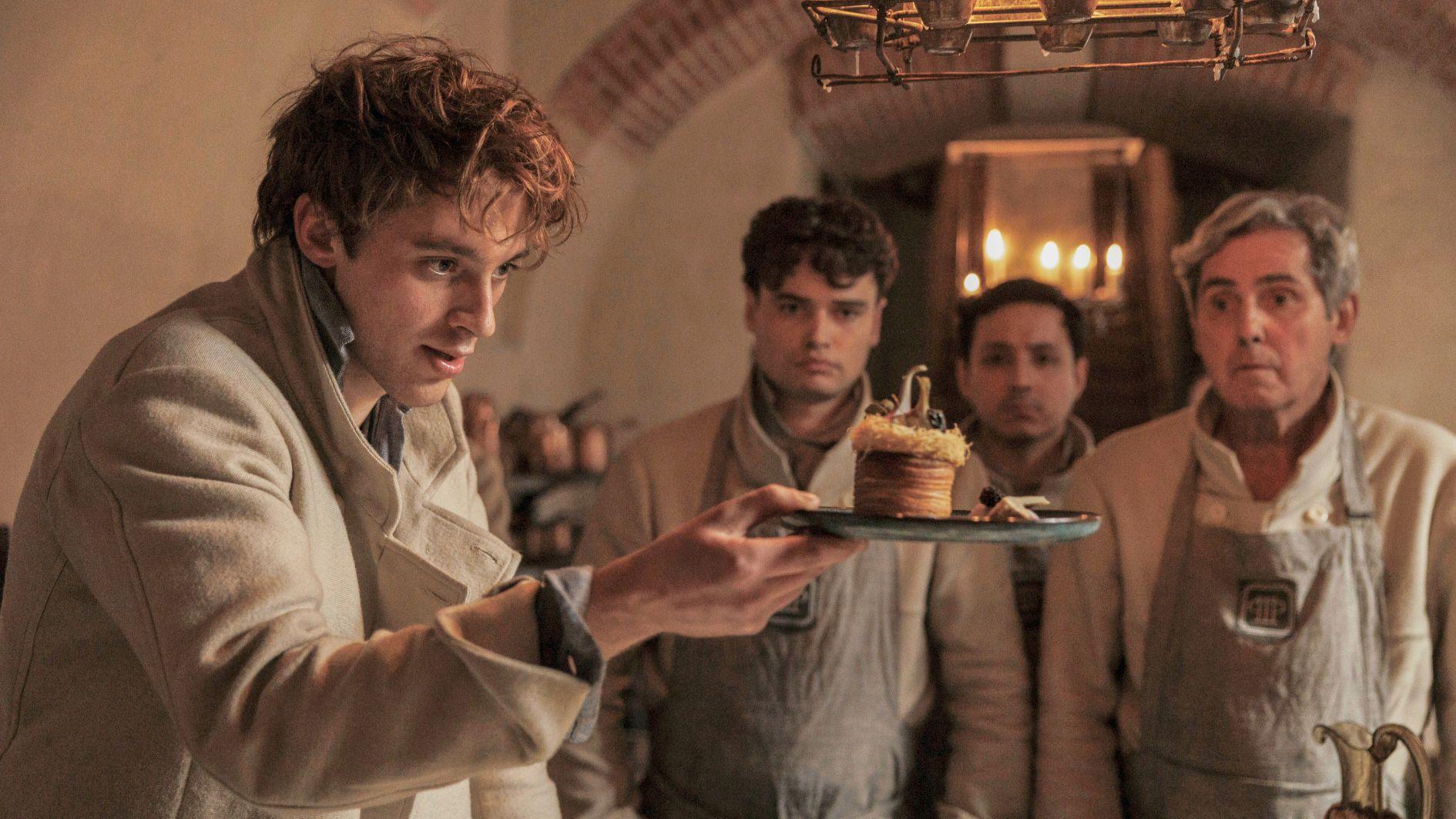
Apple TV+ dives into the heart of post-revolutionary France with “Carême,” a lush, provocative new period drama centered around Antonin Carême — the orphaned kitchen boy who rose to become the father of French haute cuisine and arguably the world’s first celebrity chef. More than just a master of elaborate pastries, Carême is reimagined here as a culinary icon, a political pawn, and a heartthrob with serious rockstar energy.
Portrayed by French actor Benjamin Voisin, Carême is a dream in the kitchen and a magnet for intrigue. With tousled hair, a gold earring, and a swagger inspired by 1970s Mick Jagger, Voisin's Carême radiates the type of rebellious charm usually reserved for rock legends. Director Martin Bourboulon says that when Voisin walked into the audition, it was obvious he embodied Carême — youthful, insouciant, and effortlessly charismatic.
The series opens with an intimate, sensuous food-tasting scene between Carême and his lover Henriette — a moment that immediately shifts into a sex scene, only to be interrupted by a royal dinner request from Napoleon’s troops. According to Bourboulon, this first sequence was deliberately designed to set the tone: the show is about food, sex, and politics, and often all three at once.
Carême isn’t just a cook — he’s also caught in the web of European power. Much of the series revolves around his relationship with the cunning diplomat Talleyrand (played by Jérémie Renier), who uses Carême’s charm and mobility to gather intelligence. In the kitchens of Talleyrand’s lavish estate, Carême evolves from a fumbling novice, who can’t even chop an onion properly, to a culinary revolutionary. His mentor? A gifted sous-chef named Agathe (Alice Da Luz), who becomes his guide in both technique and discipline.
To prepare for their roles, Voisin and Da Luz trained at the prestigious Ferrandi culinary school in Paris. The actors studied not only how to cook but also the choreography and rhythm of a real kitchen. Da Luz, in particular, says she now boasts lightning-fast knife skills thanks to her time at Ferrandi.
Beyond the personal drama and kitchen rivalries, including a Top Chef-style cooking contest, the show is also rich in historical texture. Set shortly after Napoleon's 1799 rise to power, “Carême” incorporates real historical figures and explores how food, diplomacy and identity intersect in a rapidly transforming France.
Visually, the production is lavish. Twelve grand country homes were chosen as filming locations out of a shortlist of 60. The production team created 3,000 custom candles, crafted 1,000 period-inspired costumes, and kept Talleyrand’s estate stocked with fresh flowers in 96 vases at all times. The kitchen set itself, built from scratch, was large, bright, and intentionally more open and elegant than the cramped, smoky kitchens of the era — a deliberate choice to make the cooking scenes immersive and cinematic.
The season culminates in a breathtaking coronation banquet filmed in the Parc de Saint-Cloud. Inside a massive velvet-draped tent, tables groan under the weight of a 60-kg leg of lamb, a 50-kg tuna, and towering dessert sculptures made from 5,000 cream puffs. It’s not just a feast — it’s a spectacle symbolizing Carême’s crowning achievement. When he dons the iconic tall white chef’s hat for the first time, it’s as if he’s placing a crown upon his own head, cementing his legacy as a culinary king.
Though much of Carême’s story is rooted in real history, the series takes liberties to explore his legend. Actor Lyna Khoudri, who plays Henriette, said she hadn’t known about Carême before taking the role. For her, the show is an eye-opening look into how and why French cuisine became world-renowned. Similarly, Renier delved into the life of Talleyrand, a man who navigated shifting political tides with exceptional cunning — and saw the value in having a star chef at his side.
At its heart, “Carême” is about ambition. Every character — from Carême himself to those around him — is chasing a dream, and the series explores the costs, sacrifices, and power plays involved in achieving greatness. It's a celebration of creativity, sensuality, and the pursuit of legacy — all served with a decadent flair.
For fans of period dramas with a modern edge, “Carême” offers a fresh recipe: one part history, one part seduction, and a generous dash of culinary spectacle.